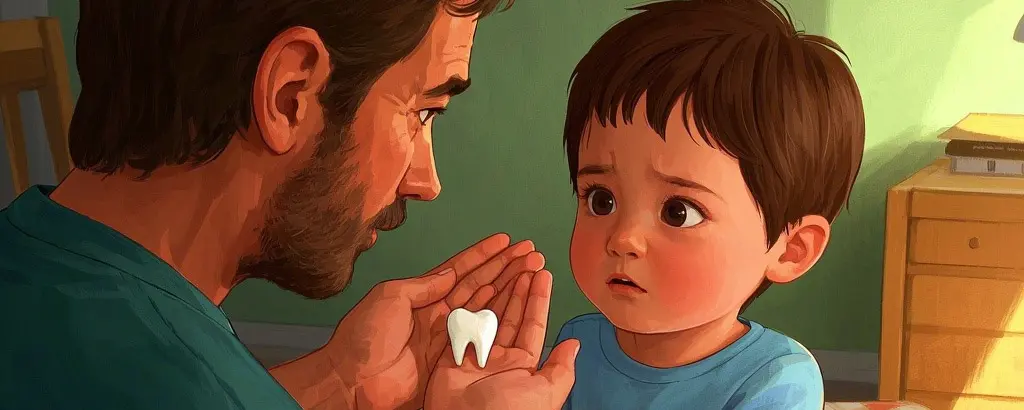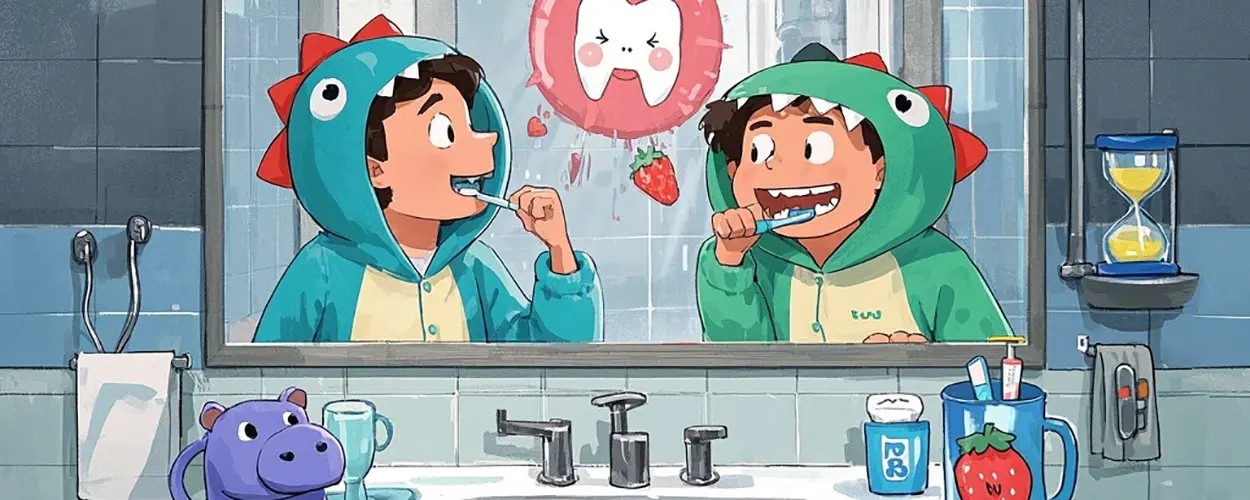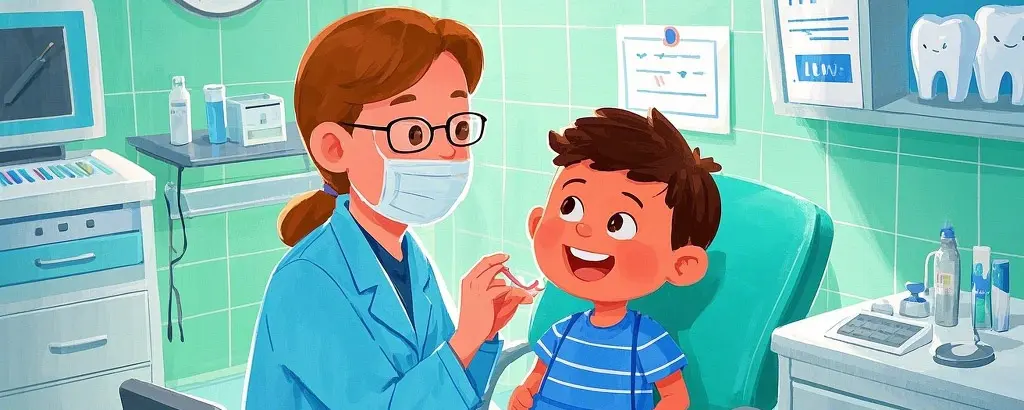When a child runs towards you in a hurry, holding a blood-stained baby tooth, are you both delighted at his growth and worried that the permanent teeth will grow crooked or get cavities? When children are 6 to 12 years old, they will go through a period of tooth replacement, which is like a relay race. The tooth replacement period is an important stage in their growth. It is not only a process of tooth replacement but also a crucial moment for psychological development.

1. Understand the “handover ceremony” of teething transition
The loss of baby teeth is like a carefully arranged performance, usually starting around six years old. The lower front teeth fall out first, and the last baby tooth falls out around 12. Throughout the entire process, the baby teeth gradually “retire”, while the permanent teeth slowly take the stage. However, sometimes there are some unexpected situation:
- Baby teeth do not fall out for long time: When permanent teeth have erupted but baby teeth still do not move, it is like the audience in the seat has not left, and dental intervention is needed.
- Misaligned new teeth: Misaligned or superimposed permanent teeth may affect occlusion. It is recommended to seek medical attention for an assessment within three months.
- Premature loss of deciduous teeth: If deciduous teeth fall out prematurely due to tooth decay or trauma, a “gap retainer” can be used to reserve space for permanent teeth.
- Double row teeth” phenomenon: Commonly seen in the front teeth area. If the deciduous teeth do not fall out naturally within two weeks, medical treatment is required.
2. Three steps to Create the golden period of tooth care: Eating, brushing, and checking are all indispensable
A. The Secret to Protecting Teeth in Diet
| Calcium-Phosphorus Combo: | Milk, nuts and other foods rich in calcium and phosphorus can help strengthen tooth enamel. |
| Vitamin D Boost | Sunbathing outdoors is the best way to obtain vitamin D, which can help with calcium absorption |
| Healthy foods | Try to let children eat more foods such as apples and corn. These foods are not only rich in nutrients but also contain a lot of crude fiber, and they are also helpful for exercising teeth and gums. |
| Beware of “hidden sugar” | Some foods, such as lactic acid bacteria drinks and preserved fruits, also contain a considerable amount of sugar, which can easily lead to tooth decay. Let your child eats less of these foods. |
B. Turn brushing teeth into a parent-child game
- Choose fruit-flavored and fluoride toothpaste and pair it with a cartoon toothbrush to make children more willing to brush their teeth.
- Use the game method of “brushing teeth by drawing circles” to get children to participate actively.
- If the baby teeth are loose, you can gently wipe the gums with a damp gauze, but avoid applying excessive force.

C. Have a dental appointment every six months
Regularly taking children for dental check-ups not only helps detect potential problems on their teeth at an early stage but also enables children to directly see the “little monsters” on their teeth with the help of plaque staining agents. This kind of direct and shocking education is ten times more effective than parents’ preaching. It can make children more consciously take care of their teeth.
3. Do a good job in providing psychological comfort to children
When a child feels uneasy about missing their teeth, try these methods:
- Put a “Tooth Spirit” denture box by the bedside. When a tooth falls out, put it in box and tell them that they can exchange it for a small reward.
- Read “Tooth Fairy’s Great Adventure” with your child and depict the process of tooth replacement as a story of a warrior defeating a worm.
- Take pictures of missing teeth one by one and make them into a growth album: “Look!” This is the evidence that you have grown up.

4. Emergency Handling Guide
- Loose deciduous teeth: Gently shake them to help them fall out, but when there is a lot of bleeding, apply ice packs to stop the bleeding.
- Bruising of permanent teeth: A slight purple color of the gums is a normal phenomenon, but if the redness and swelling persist for more than two days, it is recommended to seek medical attention.
- If a new tooth is knocked out: Immediately place the tooth in milk and go to the hospital as soon as possible. Try to have it re-implanted within one hour.
5. Conclusion
Parents, please remember – the best gift is to accompany your children as they grow up. The tooth replacement period is a crucial moment in a child’s growth. We should not only pay attention to the changes in their teeth but also focus on their psychological development during this process. During this period, we will safeguard their oral and mental health through parent-child interaction, scientific care and timely medical treatment.



